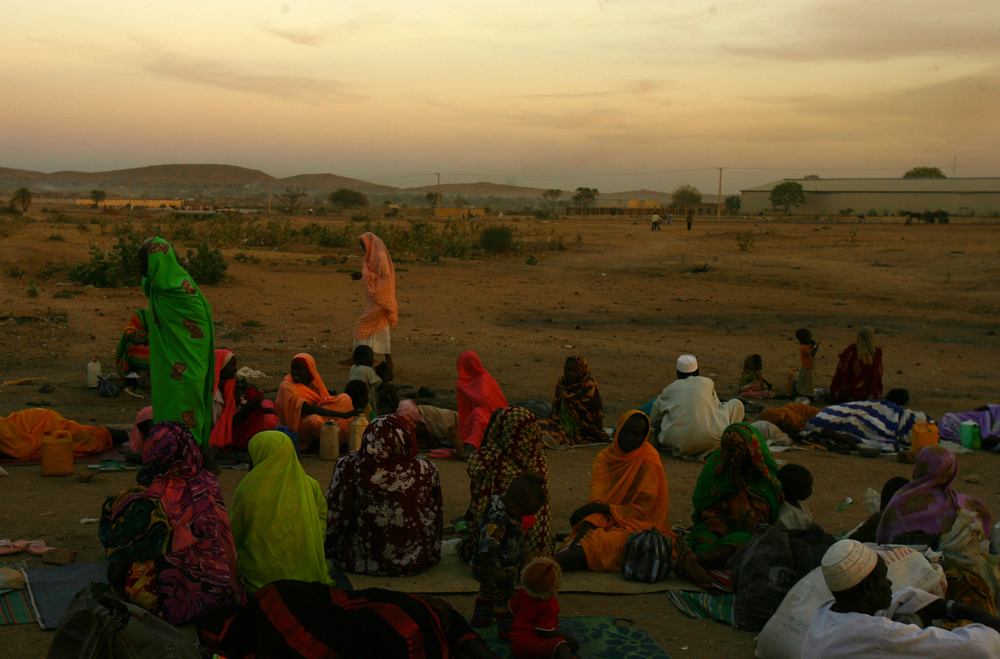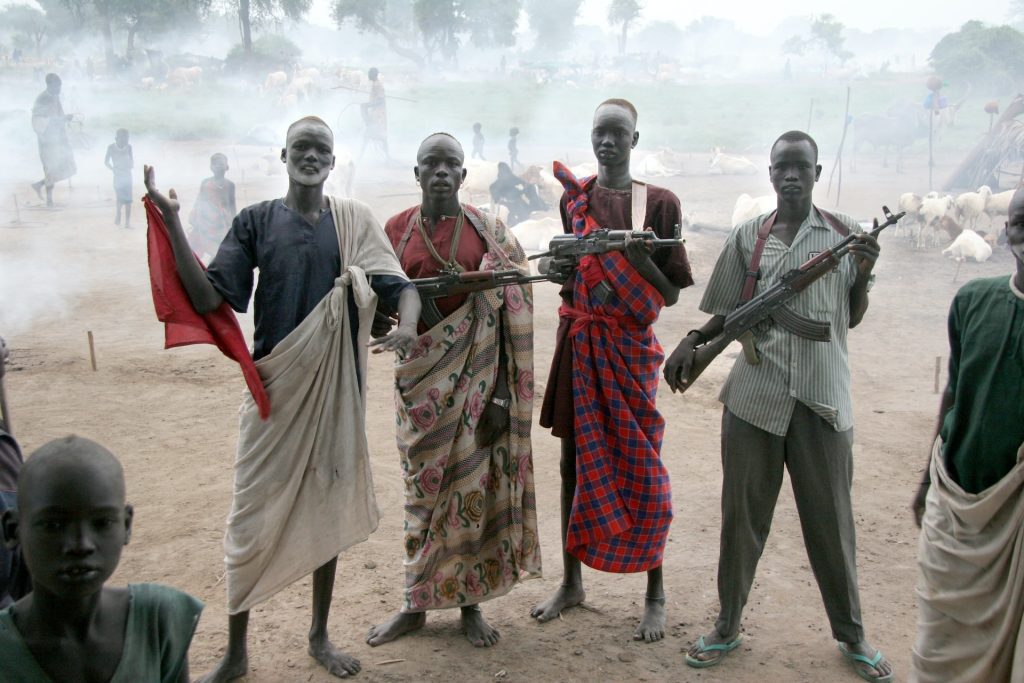On 5 September 2023, the longest trial in Swedish history commenced. The trial concerns the complicity of the representatives of a Swedish oil company—formerly known as Lundin Oil, but renamed in 2022 to Orrön Energy—in crimes against international humanitarian law and human rights in Sudan. The charges are directed towards Alex Schneiter, the former director of the company, and Ian Lundin, the former chairman of the company. They are accused of complicity in violations of international humanitarian law and war crimes committed by the Sudanese army between 1999 and 2003 in an area where the company was capitalising on an oil field: Block 5A in Unity State.
How did a Swedish oil company end up with allegations of Sudanese blood being on their hands? The volatile, yet complex history of the two Sudans plays a central role in understanding the conflict in the nation. Sudan, since its independence from Great Britain in 1956, has been ravaged by violent conflict. Since then, there have only been 11 years (1972-1983) of peacetime in the nation. In 1983, the Second Sudanese Civil War began, when the Government of Sudan terminated the autonomy of the southern region of Sudan and imposed Sharia law throughout the nation. The main characters of the conflict were the Sudanese Government and its military, fighting against different rebel groups of the South, the most famous of which were known as the Sudan People’s Liberation Military / Army (SPLM/A).
Christine Batruch, the Senior Strategic Advisor for Lundin Energy and a historian and lawyer, describes Sudan’s history as “one of the longest and most tragic wars of modern history”. The constant state of war eventually culminated in the creation of the world’s newest state in 2011—the Republic of South Sudan. The conflict, however, still lives on today in both South Sudan and Sudan.


In February 1997, in the midst of the Second Sudanese Civil War, Lundin Oil came into the picture. The company signed an Exploration and Product Sharing Agreement for Block 5A in Unity State—a region in what is today South Sudan’s territory—with the Government of Sudan. Neighbouring blocks 1, 2, and 4 in the northern parts of Unity State had been the stage for conflicts and forced displacement since the late 1980s and early 1990s. Block 5A, on the other hand, remained a low-conflict area during this time and was not under the control of the Government of Sudan or their forces. That is until the oil concession contract had been signed between Lundin Oil and the Government of Sudan.
In April 1996, a political charter was signed between the Government of Sudan and the factional rebel groups in the South. Its purpose was to ensure peace in the region and set the foundation for the peace agreement signed in 1997. This agreement, known as the Khartoum Peace Agreement, was signed between the same parties. Lundin Oil had expressed its faith in this Peace Agreement.
To facilitate the extraction of oil in Block 5A, the Government of Sudan—as it had done in the early 1990s in other blocks—violently displaced the local population. A report from Médecins Sans Frontières (MSF), which has been present in the area since 1988, shows that when Lundin Oil discovered an oil field in Block 5A, it became another frontline in the Civil War, thereby becoming another stage on which the Sudanese Government committed violations against human rights and international law. The local population was forcefully displaced as new oil roads were built in Block 5A. The Government forced this displacement through methods such as bombing, shooting at civilians from military helicopters, burning crops and attacking villages along these oil roads. The conflict had become an oil war.
The European Coalition on Oil in Sudan estimated in their “Unpaid Debt” report that approximately 12,000 people had died either from fighting, starvation or other conflict-induced diseases, and about 160,000 people had been forcibly displaced.
The military operations undertaken by the Sudanese Government evidently violate human rights and international humanitarian law. By targeting civilians in their attacks, the government has violated two cornerstone principles of international law—those of distinction and proportionality—both of which strictly forbid such attacks. Further evidence of the crimes committed by the Sudanese Government is found in the international arrest order issued by the International Criminal Court (ICC) against Omar Al-Bashir—the president of Sudan between 1989 and 2019. The charges against him include crimes against humanity, genocide, and war crimes.


Guilty or not?
This year, almost 25 years after Lundin Oil first came to Sudan, its former chairman and former director (Lundin and Schneiter) have been taken to court in Stockholm. They are accused of being complicit in these war crimes. The prosecution holds that the Sudanese Government conducted “offensive military operations in Block 5A and its vicinity to gain control of areas for oil prospecting and create the necessary conditions for oil extraction” between May 1999 and March 2003. This statement can be backed with plenty of evidence. What is not completely evident is whether the involvement of Lundin Oil in Sudan infers their complicity in these war crimes. This is, however, the position of the prosecution, which asserts that Schneiter and Lundin were, at least, indifferent to the knowledge of how the Sudanese Government might come to extract the oil. At most, Lundin Oil supported the activities of the Sudanese Government in order to protect their oil explorations.
Whilst the prosecution holds that the complicity of Schneider and Lundin is clear, it can historically be seen that it is a part of Swedish foreign policy to encourage investments in poorer nations in order to achieve economic development that is to the benefit of the country. A helping hand out of poverty. This is part of a constructive engagement policy, which entails cooperation, adopted by the EU and UN. In 1999, Magnus Nordin – the Deputy Managing Director of Lundin Oil at the time – stated that “(we) have the impression that oil exploration contributes to making the situation much calmer in this particular area”.
The former Prime Minister of Sweden and Member of the Board of Lundin Oil, Carl Bildt, stated in 2001 his belief that oil “is an opportunity for Sudan and is able to contribute to peace and development”. Others are of the opinion that Schneiter and Lundin are not legally complicit in any of the war crimes committed in Sudan. Such a stance is held in a report on the Lundin case, which reached the conclusion that the foundation for the case and allegations presented by the prosecution “are seriously flawed”.
The trial against Lundin Oil is expected to reach its end in mid-2026. From September 2023 until May 2024, the prosecution and defence will present the claims, pleas, grounds, and presentation of facts. Following this, the Court will examine the plaintiffs, defendants, and the witnesses. By February 2026, closing arguments are expected to have been presented, and the Court will deliberate on its conclusion.
It remains to be seen whether Schneiter and Lundin can be held responsible for complicity in the war crimes committed in Sudan. However, ethics and law do not always go hand in hand. The outcome of the trial may be one, but in the court of public opinion, the result may differ. It seems unlikely that a company like Lundin Oil would enter into the oil affair with Sudan, fully knowing they would be complicit in war crimes and violations of human rights. The question of whether it was greed that blinded the company to such violations, is a question that only the Court can determine.
By Roya Juhlin-Dannfelt
October 10, 2023








